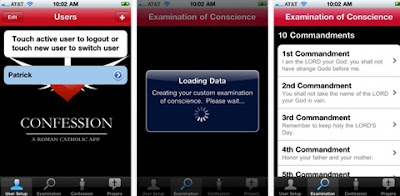It's been billed as the
most eagerly awaited song of the decade, with the kind of pre-release buzz that makes Jesus' second coming seem about as exciting as the
New Kids On The Block reunion tour. And today, Lady Gaga's new single 'Born This Way' was finally unveiled to the world.
She's been talking it up as the song that will define her career, causing millions of little monsters to frot themselves into a coma at the prospect of Gaga at her creative peak. When she first performed an acapella snippet of the song at the
VMAs in September last year, the internet was soon awash with remixes and interpretations based around the 15-second sample.
Since then, excitement has been steadily building, as the world keenly anticipated a song with the power to solve world hunger, end intolerance and maybe even inspire a half-decent movie for Jennifer Aniston to star in. Although, to be fair, great music can only do so much.
The
lyrics were released a couple of weeks ago, in the process triggering a big debate about Gaga's unfortunate choice of racial terminology - ironic for a song designed to be an anthem for tolerance and acceptance. Earlier this week,
Justin Beiber and James Blunt even teamed up (apologies for any nightmares that coupling might inspire) on the Ellen Show, to interpret the lyrics and speculate about how the finished record might sound.
OK, so it was mostly an extended gag, and not a particularly funny one. But it's interesting to note that, even as the media might mock Gaga's supernatural ability for self-publicity, they're happy to play along because it helps them to generate interesting content.
But what about the song itself? Well, now that it's out there for us all to hear, we can all reflect on the true meaning of hyperbole. The world hasn't changed, although it does have one more kick-ass, played-in-every-club-until-year-end dance record to enjoy.
Critics are already complaining that it sounds like early nineties Madonna, namely Express Yourself and Vogue. Melodically, there's also a dash of TLC's Waterfalls in the verses, and fans of Swedish pop music might even hear elements of Pandora's 'Nature Of Love' somewhere in there. As for the lyrics, it's worth remembering that a song by the same name was
recorded by Carl Bean back in 1975 - coincidentally, the year when p0pvulture was 'born this way'.
Ultimately, none of this matters. Pop is a genre which lends itself to constant recycling and reinvention - Madonna's 25-year reign as the Queen of Pop can be attributed to the act that she has regenerated herself enough times to give
Doctor Who a headache.
Her fans are going to love it, and the haters won't. But those in the middle might well find themselves drawn in by the insistent beats, Gaga's strongest vocals to date, and a chorus that takes up residence in your brain like a particularly truculent squatter.
Oh, and credit where credit's due - it takes a special kind of artist to base her comeback around an empowerment anthem that makes an explicit plea for tolerance around sexuality and gender identity. Chronologically, Gaga's song may arrive after other musicians have already attempted to address issues of teen bullying and the gay suicide epidemic. However, despite their edgy attitudes and novelty profanity, tracks like P!nk's
Fuckin' Perfect and Ke$ha's
We R Who We R manage to dodge the details, as a way of placating the music fans who'd prefer not to dwell on the subject matter. Gaga has never been one to mince her words, just her
dress.
Disappointingly, not everyone in the gay community is happy with Gaga's newest opus. The original
Party Monster James St James wrote a
scathing critique of the song's lyrics, challenging Ms Germanotta for having the arrogance to proclaim her own song a 'gay anthem'. He claims "A gay anthem, whether it's "I Will Survive" or "The Man That Got Away" or "And I'm Telling You I'm Not Going," BECOMES a gay anthem because we find ourselves empathizing with the singer's passion or pain or exuberance... Gaga here isn't allowing us the choice of deciding whether or not this song will be a gay anthem (like "Bad Romance"), she's TELLING US that it is."
But that's a sure sign of how much things have changed. Rather than picking through the wreckage for crumbs of acknowledgment or inclusion, we have to face up to the sad fact that songs are now being written for, and about, us. Perhaps, in the pursuit of mainstream acceptance, we need to come to terms with the gradual surrender of our outsider status - to paraphrase
The Incredibles, equality means accepting that we get to be as ordinary as everybody else.
It's highly likely that Gaga doesn't really give too much of a shit about what anyone says about the song. The fact that we're even talking about it means that, for her, it's another job well done. Although, if this is any indication of what's to come on her next album, it's safe to say she's on the right track, baby.























